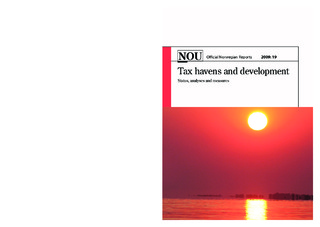Tax havens and development
Conference object
Permanent lenke
http://hdl.handle.net/11250/2475418Utgivelsesdato
2009-10-01Metadata
Vis full innførselSamlinger
- Publications [1488]
Originalversjon
Presented at: The Annual Conference of the Task Force on Financial Integrity and Economic Development, Washington DC, 16-17 September 2009Sammendrag
Tax havens harm both industrialised and developing countries, but the damaging impacts are largest in developing countries. This is partly because these countries are poor and thereby have more need to protect their national tax base, and partly because they generally have weaker institutions and thereby fewer opportunities for enforcing the laws and regulations they adopt. Tax treaties between tax havens and developing countries often contribute to a significant reduction in the tax base of the latter. In addition, certain effects of tax havens primarily make themselves felt in developing countries. While the existence of tax havens is likely to have had little impact on political institutions in rich nations, a number of indicators suggest that tax havens contribute to maintaining a vicious circle in developing countries whereby weak institutional capacity facilitates illegal capital flight, and tax evasion and capital flight in the next instance restrict the development of institutions.
